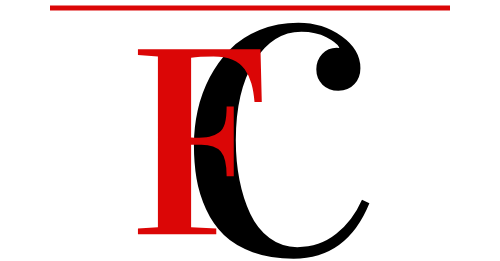The Nigerian fashion industry has made significant strides over the past few years, with local designers gaining international recognition for their unique designs and high-quality craftsmanship. However, there is still much room for improvement in various aspects of the industry. In this article, we will explore strategies for enhancing the Nigerian fashion scene and propelling it to greater heights.
The State of the Nigerian Fashion Industry
The Rise of Nigerian Fashion
Nigerian fashion has been on the rise, with talented designers showcasing their creations on international runways and attracting attention from fashion enthusiasts worldwide. This increased visibility has led to collaborations with international brands and a growing demand for Nigerian designs.
Challenges Facing the Industry
Despite its potential, the Nigerian fashion industry faces numerous challenges, including inadequate infrastructure, limited access to quality education and training, and a lack of government support. Addressing these issues is crucial to propelling the industry forward.
Improving Infrastructure and Production
One way to improve the industry is to invest in local textile manufacturing. Developing a robust textile sector would create jobs, reduce dependence on imported fabrics, and help designers access high-quality materials at competitive prices.
Encouraging Local Production
Promoting local production is essential for the growth of the Nigerian fashion industry. By supporting local artisans and manufacturers, Nigeria can reduce imports, create employment opportunities, and foster a self-sustaining industry.
Developing Fashion Design Schools
Establishing world-class fashion design schools in Nigeria would provide aspiring designers with the knowledge and skills they need to excel. These schools should offer comprehensive curricula, including courses on design, production, marketing, and business management.
Fostering Collaboration and Mentorship
Creating opportunities for collaboration and mentorship between established designers and emerging talents can facilitate knowledge transfer and inspire the next generation of Nigerian fashion leaders.
Promoting Sustainable and Ethical Fashion
Eco-friendly Materials and Practices
Encouraging the use of sustainable materials and practices can help minimize the fashion industry’s environmental impact. Designers can incorporate eco-friendly fabrics, use natural dyes, and adopt waste-reduction techniques in their production processes.
Fair Labor Standards
The Nigerian fashion industry should prioritize fair labor standards to ensure workers are treated ethically and paid fair wages. This will not only improve working conditions but also enhance the industry’s reputation globally.
Building a Stronger Fashion Ecosystem
To thrive, the Nigerian fashion industry must focus on strengthening its business aspects. This includes improving supply chain management, developing effective distribution channels, and enhancing the retail experience for consumers.
Supporting Emerging Designers
Providing financial assistance, mentorship, and networking opportunities for emerging designers can help them overcome the challenges they face and foster innovation in the industry.
Leveraging Technology
E-commerce and Online Presence
Embracing e-commerce and establishing a strong online presence is essential for Nigerian fashion brands to reach a broader audience and compete in the global market. Designers should optimize their websites for user experience and invest in effective online sales strategies.
Digital Marketing and Social Media
Utilizing digital marketing and social media channels is crucial for promoting Nigerian fashion brands and attracting attention from customers worldwide. Designers can collaborate with influencers, create engaging content, and leverage platforms like Instagram and Facebook to showcase their work.
Government Support and Policies
The Nigerian government can play a pivotal role in the industry’s growth by implementing favorable policies and regulations. This includes reducing import duties on essential raw materials, offering tax incentives to local manufacturers, and creating designated fashion hubs.
Access to Finance and Grants
Providing access to finance and grants for fashion entrepreneurs can help them overcome financial constraints and invest in their businesses growth.
Growing International Recognition
Encouraging Participation in Global Fashion Events
Supporting Nigerian designers’ participation in international fashion events, such as fashion weeks and trade shows, can help them showcase their work, network with industry professionals, and attract global attention.
Promoting Nigerian Fashion Abroad
Initiatives aimed at promoting Nigerian fashion abroad, such as organizing fashion exhibitions and cultural exchange programs, can help raise awareness about the industry and attract international buyers.
ALSO SEE: How to Study Fashion Design in Yabatech
Conclusion
The Nigerian fashion industry has enormous potential, but realizing it requires concerted efforts from various stakeholders, including designers, manufacturers, investors, and the government. By addressing the challenges and implementing the strategies discussed in this article, Nigeria can become a global fashion powerhouse.

FAQs
What are the main challenges facing the Nigerian fashion industry?
Some of the main challenges include inadequate infrastructure, limited access to quality education and training, and insufficient government support.
How can local textile manufacturing benefit the Nigerian fashion industry?
Local textile manufacturing can create jobs, reduce dependence on imported fabrics, and provide designers with high-quality materials at competitive prices.
Why is it important to promote sustainable and ethical fashion in Nigeria?
Sustainable and ethical fashion practices can help minimize the industry’s environmental impact, improve working conditions, and enhance the industry’s global reputation.
How can technology help the Nigerian fashion industry grow?
Technology can help Nigerian fashion brands reach a broader audience through e-commerce, improve their online presence, and effectively market their products using digital marketing and social media platforms.
What role can the Nigerian government play in supporting the fashion industry?
The Nigerian government can support the fashion industry by implementing favorable policies and regulations, providing access to finance and grants, and promoting Nigerian fashion on a global stage.

Leave a Reply